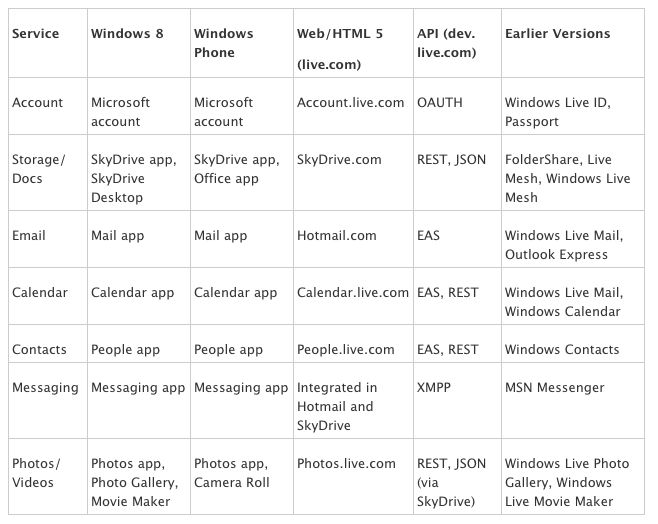Windows Live is dead, long live Windows Live
 In a blog post on Wednesday, President of Microsoft's Windows division Steven Sinofsky announced the seven-year old Windows Live brand is being retired.
In a blog post on Wednesday, President of Microsoft's Windows division Steven Sinofsky announced the seven-year old Windows Live brand is being retired.
Do not be mistaken, there are more than 500 million users of the various Microsoft services that fall under the general classification of Windows Live. They are alive and well.
The brand and the concept of Windows Live as a whole, however, is antiquated in this mobile-driven era, and Microsoft is finally halting the differentiation.
"Windows Live services and apps were built on versions of Windows that were simply not designed to be connected to a cloud service for anything other than updates, and as a result, they felt 'bolted on' to the experience," Sinofsky said. "This created some amount of customer confusion, which is noted in several reviews and editorials. The names we used to describe our products added to that complexity: we used 'Windows Live' to refer to software for your PC (Windows Live Essentials), a suite of web-based services (Hotmail, SkyDrive, and Messenger), your account relationship with Microsoft (Windows Live ID), and a host of other offers."
The Windows Live brand has grown to encompass a user's Microsoft account that spans both Windows Live and Xbox Live services, Hotmail/Livemail, Messenger, SkyDrive, Calendar, Windows Contacts, the Live Essentials suite of desktop applications such as Windows Live Photo, Live Movie Maker, Live Writer, Live Mesh, and Live Mail.
Microsoft is retiring the idea of "connected services" versus completely insular ones, and is using the mobile world's most common dividing line: there are apps, and then there are Web apps. This is how services will be broken down and branded for Microsoft.

strong>Photo Credit: Digital Genetics/Shutterstock